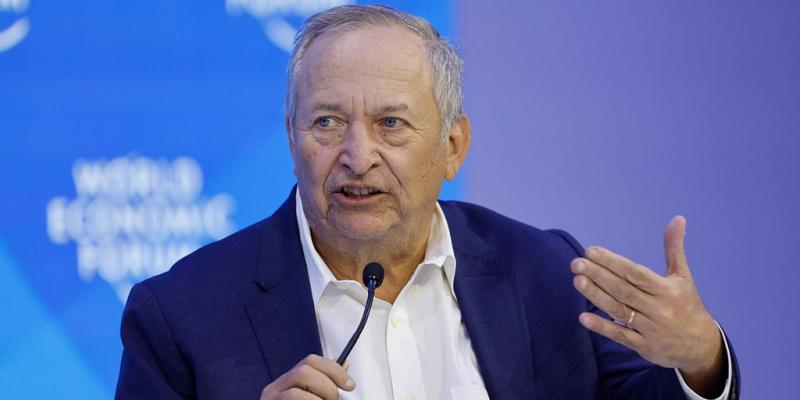Silicon Valley Bank committed 'one of the most elementary errors in banking,' Larry Summers says
By: Chris Pandolfo (Fox Business)


Summers' financial doublespeak blames SVB for investing depositor assets in what is considered the most safe, secure, and risk free investment; Federal bonds. According to Summers, SVB was supposed to engage in riskier behavior with depositor assets. Why would a bank investing in Federal bonds raise red flags for Federal regulators? Typically Federal regulators require banks to make larger investments in Federal bonds to maintain liquidity.
Summers also tries to shift blame onto the Federal Reserve for increasing interest rates. But the Fed doesn't set yields on Federal bonds. Bond yields are determined in auctions of Federal debt conducted by the Treasury Dept.
Don't be fooled by the doublespeak from these neoliberal financial gurus. Biden led a Democratic Congress down the path of profligate spending. It was Democrats' spending policies that caused the value of Federal bonds to collapse. Federal spending, alone, is responsible for devaluing Federal bonds. That's not SVB's fault and that's not the Federal Reserves fault. Biden's blank check style of governing has weakened the foundation of the US economy. Federal deficits really do matter.

Silicon Valley Bank, the nation's 16th-largest bank, failed because its managers made a textbook mistake, according to former Treasury Secretary Larry Summers.
Summers, a Harvard University professor who served in both the Clinton and Obama administrations, said Monday the bank "committed one of the most elementary errors in banking: borrowing money in the short term and investing in the long term."
SVB collapsed Friday after depositors ran on the bank, which didn't have cash on hand to cover their withdrawals. It was the second-biggest bank failure in U.S. history and the largest since Washington Mutual went under in 2008.
What happened is fairly simple: when interest rates were at historic lows, SVB invested depositors' funds in long-term Treasury bonds. But as the Federal Reserve increased interest rates to combat inflation, the price of those bonds cratered, taking SVB with it.
"When interest rates went up, the assets lost their value and put the institution in a problematic situation," Summers explained on Twitter.
On Wednesday, SVB suffered a $1.8 billion after-tax loss and attempted to address its liquidity crisis by selling equity. The move backfired - in just 24 hours, SVB lost over $160 billion in value and spooked depositors, who rushed to withdraw their money before the situation got worse.
Regulators stepped in on Friday, when the Federal Deposit Insurance Corporation took control of the bank. The FDIC said in a statement that SVB had $209 billion in assets and $175.4 billion in deposits at the end of 2022. It guaranteed that insured deposits, up to the statutory limit of $250,000, would be made available by Monday.
The FDIC created a new entity, called Silicon Valley Bank N.A., and transferred all of SVB's deposits there, where depositors can access their money.
Former Fannie Mae head Tim Mayopoulos was appointed CEO of the new bridge bank, Reuters reported.
"I look forward to getting to know the clients of Silicon Valley Bank... I also come to this role with experience in these kinds of situations," Mayopoulos wrote in a letter to clients. "I was part of the new leadership team that joined Fannie Mae in the wake of the financial crisis in 2008-09, and I served as the CEO of Fannie Mae from 2012-18."
In an interview on CNN, Summers called for increased supervision and regulation of the banking industry.
"It doesn't appear on current facts that a very good job was done regulating and supervising Silicon Valley Bank," he said.








What are banks supposed to use to secure depositor assets? If Federal bonds are too risky then what else is available? Credit default swaps? Derivatives? Fannie Mae mortgages?
Silicon Valley Bank gave up profits for low-risk security. But a Biden led Democratic Congress undermined that security because they wanted to buy votes instead of worry about deficits. And the Biden administration ignored the warning signs when Federal bond yields increased dramatically.